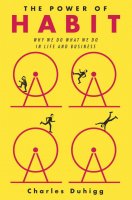Ten years ago I discovered xylitol and the positive effects it had on the health of my gums. Four years later I reported on my unintentional experiment in which I discovered that regular use of xylitol in my dental care routine kept my teeth in better shape than they had ever been.
I'm still a huge proponent of xylitol, but today I must report an important caveat: be careful to check the ingredients of any xylitol product you use.
For years I had swished pure xylitol around in my mouth before going to sleep at night—and sometimes during the day as well. That led to a huge dental health victory for me. But I was concerned that most xylitol comes from China, and I try to avoid food products from there if possible, because of their many known abuses. So I was excited to discover a North American-based source of xylitol, and even more so because they also sold xylitol mints and candies that were both more convenient and more interesting than plain xylitol.
Then the reports from my dentist started going downhill, and I was having to have crowns replaced that should have lasted for years, because of decay at the gumline. My dentist was dumbfounded, and so was I. Then I looked at the ingredients list on my xylitol candy packages. Many seemed fine—if flavorings alone caused problems, they would not be in toothpaste. But it turns out that some of the candies, particularly the fruit-flavored ones, also include citric acid.
There may be other factors that led to my dental problems, but certainly it could not have been good to be bathing my teeth in citric acid at night, particularly since I would let the candies disolve slowly in my mouth as I fell asleep, and would also reach for them in the middle of the night to calm a dry cough. After all, it's not so much the bacteria that cause dental caries, but the acid created by the bacteria.
So I'm back to using pure xylitol for my teeth, and taking care to avoid the xylitol candies and mints that contain citric acid. I share this for everyone, including my own grandchildren, who chew xylitol mints as part of their nightly routine, because their dentists have recognized the value of xylitol for dental health. It's still a great idea—but have a care for the other ingredients.
 The History of the Renaissance World: From the Rediscovery of Aristotle to the Conquest of Constantinople by Susan Wise Bauer (W. W. Norton, 2013)
The History of the Renaissance World: From the Rediscovery of Aristotle to the Conquest of Constantinople by Susan Wise Bauer (W. W. Norton, 2013)
Three years ago, when I finished reading Bauer's The History of the Medieval World, I wrote a brief review. With very minor tweaks it could serve just as well for a review of her history of the Renaissance. I'm still looking forward to her next installment, whenever that may be; I'm still tired of "kings and battles and political intrigue" factor and want to hear more about art, music, and everyday life; I'm still hopelessly confused by the endless repetition of the same names for European rulers and the unpronounceable names of rulers everywhere else; and I still love seeing the connections between European history and my genealogical research.
Slowly, slowly I am building up a historical framework in my mind. When I was in school, I didn't have the least interest in history. I had negative interest in history, actually. Math was important, science was important—but history? Boring and useless. Out-of-date. Now I know better. For all I know, history in schools may still be boring, but that tragedy doesn't diminish its importance. Without knowing where we've been, we don't know where we are, and we certainly don't know where we should go and how we might get there.
I would still put the ability to read well and excellence in mathematics at the top of my list of educational priorities, but a solid grounding in history would come next.
Having grown up without air conditioning, I remember the days when it was important to turn off lights that you weren't using—not merely to save money, but because lights made the room warmer. One advantage to the trend toward fluorescent and LED bulbs is that they don't do that so much.
On the other hand, I don't want incandescent bulbs banned, because sometimes you want that heat. I can keep my composting worms from freezing on a cold winter's night by simply turning on a light under their coop. If it had an LED bulb, they'd freeze to death.
The new, highly-efficient incandescent bulb developed by MIT won't help me with that problem. Nonetheless, I'm glad to hear about it, since (1) it can be cheaper than the flurescent and LED bulbs, (2) it's safer, and (3) it gets the colors right.
Permalink | Read 2383 times | Comments (0)
Category Everyday Life: [first] [previous] [next] [newest] Conservationist Living: [first] [previous] [next] [newest]
Back to LaMonte Fowler's essay, for the fifth in this series.
Science is real. We know things because of science. Don’t be afraid of it. You have an iPhone and Facebook because of science. It’s your friend.
It's hard to respond to this without knowing what he means by being afraid of science. I've certainly never been afraid of science itself: growing up an avid science fiction fan, in an era when SF was more science than fantasy, in a family where anyone who was not an engineer was a mathematician. Math major in college with a heavy sprinkling of science and engineering courses—later I worked as a software designer in a university research lab. No, I never was afraid of science.
But here are a few things that do cause me concern.
Misuse of technology I've loved computers since paper tape. I think technology is wonderful. The Industrial Revolution was wonderful, too, but it had a dark side. It's foolish to believe the advances in computing, medicine, and agriculture, for example, can be safely accepted without serious environmental, ethical, and social considerations. So yes, I'm scared of science unbounded.
Science politics It doesn't take long working in the field to realize that scientific research is as plagued by prejudice, good ol' boy networks, and partisan politics as anywhere. It doesn't matter how good your research and reasoning are, if you run afoul of accepted doctrines, they may never see the light of day, and you're not likely to get funding. This is nothing new, having been around as long as science itself has, but it still scares me. If the work of Ignaz Semmelweis had not been ignored because it contradicted established tenets, much suffering and innumerable deaths would have been prevented. I'm afraid of missing important breakthroughs and making dangerous mistakes.
Science-as-religion Science is a wonderful servant but a terrible master and a worse deity. There are many people, usually professing themselves to be atheists, whose devotion to Science displays all the characteristics of the religious fervor they despise. "But what we profess is the truth," they may object. Q.E.D. Science fanaticism scares me as much as any other—maybe more so, since it's a fundamentalist faith that's flying under the radar.
Science isn't my friend. It's much too powerful and overarching to be friendly. It may be one of the greatest tools we have, but it's more like a chainsaw than a friendly nextdoor neighbor.
Global warming or “climate change” as the cool kids call it IS REAL. Anyone who tells you it’s not real is not a smart person and probably should not be dressing themselves or caring for children.
Once again skating past the gratuitous insults, I have to say that if Fowler thinks the objection people have with the current climate change ideology is "it's not real," then he's not listening very well. Sincere and serious issues that I have heard include:
- Questions about the reliability of the computer models used to predict the future—especially from those of us who have seen how badly computer models have sometimes performed in other areas
- Questions about how much of the change is due to man-made causes and how much is part of a natural cycle
- Questions about the efficacy, sustainability, and social consequences of any actions we might take to ameliorate the situation—especially from those of us old enough to have lived through the time when the worry was global cooling, and it was seriously proposed that we might improve the situation by spreading sun-absorbing dirt on the ice caps
- Concerns that the issue has become less science and more religion, with those who venture to question the orthodox creed suffering ad hominem attacks and the full force of science politics as mentioned above
To be clear: I don't question climate change. I do have serious objections to using straw-man arguments and insulting language instead of listening carefully to those with whom we disagree and responding calmly and rationally.
Permalink | Read 2098 times | Comments (5)
Category Random Musings: [first] [previous] [next] [newest]
I rarely read Doonesbury anymore, as I've greatly cut back on my comic reading, and get too much political ranting as it is. But here's one I can appreciate! (Click to enlarge.)
Permalink | Read 2180 times | Comments (0)
Category Children & Family Issues: [first] [previous] [next] [newest] Just for Fun: [first] [previous] [next] [newest]
 The Power of Habit: Why We Do What We Do in Life and Business by Charles Duhigg (Random House, 2012)
The Power of Habit: Why We Do What We Do in Life and Business by Charles Duhigg (Random House, 2012)
After reading this book, I have the uneasy feeling that it is sometimes oversimplified and doesn't tell the whole story. It is, however, heavily documented—when I read the last sentence of the text my Kindle told me I was merely 75% through the book—and anyone who wants to take the trouble to dig further can do so. More importantly, anyone who wants to test out Duhigg's theories of the power of our habits can easily experiment in the laboratory of his own life.
There's a lot in The Power of Habit that will be familiar to the circle of my readers who are working hard on personal change and challenge. We already know the importance of habit and routines, of baby steps and small wins. But Duhigg's numerous examples and summaries of scientific research are valuable and inspiring.
Our habits aren't just part of our lives—they are what make the rest of our lives possible. Habits are the infrastructure that takes care of the basics and frees our brains for higher work. As habits become part of our brain's structure, they make the difference between sounding out c-a-t and enjoying a novel, between learning to drive and toolin' down the highway.
So habits are good. Well, good habits are good. But the brain doesn't distinguish between good and bad habits. (I'm not sure that's true. Why else would a good habit take weeks to establish but a bad habit seems to stick after a few days?)
Good or bad, habit formation has a basic structure:
This process within our brains is a three-step loop. First, there is a cue, a trigger that tells your brain to go into automatic mode and which habit to use. Then there is the routine, which can be physical or mental or emotional. Finally, there is a reward, which helps your brain figure out if this particular loop is worth remembering for the future.... Over time, this loop—cue, routine, reward; cue, routine, reward—becomes more and more automatic. The cue and reward become intertwined until a powerful sense of anticipation and craving emerges. Eventually ... a habit is born.
And it never really goes away. It's always there, in the brain. That's good, because it means that after falling out of a good routine we can get back in less time than it took to establish it. But it also means that the bad habits we thought we had conquered are lurking there, ready to ensnare us again if we aren't wary.
Habits aren’t destiny. ... [H]abits can be ignored, changed, or replaced. But the reason the discovery of the habit loop is so important is that it reveals a basic truth: When a habit emerges, the brain stops fully participating in decision making. It stops working so hard, or diverts focus to other tasks. So unless you deliberately fight a habit—unless you find new routines—the pattern will unfold automatically.
The Golden Rule of Habit Change: You Can’t Extinguish a Bad Habit, You Can Only Change It.
How is this accomplished? By following the cue, which triggers the bad habit, with a different routine, but the same reward. It's a little more complicated than that, or the book would be a lot shorter. One important factor is identifying what is truly rewarding the action. Do I eat a doughnut every morning because I'm hungry, or because I crave sugar, or because it provides an excuse for socializing with my coworkers? Only when you know what the reward provides can you determine an appropriate good routine to replace the one you want to eliminate.
[H]abits are so powerful [because] they create neurological cravings.
[C]ountless studies have shown that a cue and a reward, on their own, aren’t enough for a new habit to last. Only when your brain starts expecting the reward—craving the endorphins or sense of accomplishment—will it become automatic to lace up your jogging shoes each morning. The cue, in addition to triggering a routine, must also trigger a craving for the reward to come.
More good news lies in the concept of keystone habits. It turns out that very often changing one habit, conquering one problem leads in a domino effect to victories in other areas.
The habits that matter most are the ones that, when they start to shift, dislodge and remake other patterns.
Keystone habits offer what is known within academic literature as “small wins.” They help other habits to flourish by creating new structures, and they establish cultures where change becomes contagious. ... A huge body of research has shown that small wins have enormous power, an influence disproportionate to the accomplishments of the victories themselves.
Keystone habits say that success doesn’t depend on getting every single thing right, but instead relies on identifying a few key priorities and fashioning them into powerful levers.
Once people learned how to believe in something, that skill started spilling over to other parts of their lives, until they started believing they could change. Belief was the ingredient that made a reworked habit loop into a permanent behavior.
Making your bed every morning is correlated with better productivity, a greater sense of well-being, and stronger skills at sticking with a budget. It’s not that a family meal or a tidy bed causes better grades or less frivolous spending. But somehow those initial shifts start chain reactions that help other good habits take hold.
“If you want to do something that requires willpower—like going for a run after work—you have to conserve your willpower muscle during the day,” Muraven told me. “If you use it up too early on tedious tasks like writing emails or filling out complicated and boring expense forms, all the strength will be gone by the time you get home.”
For almost all our married life, we have kept track of every penny earned and spent. It's the best way we know of to learn where our spending habits are on track and when they're veering off into trouble. I've always been surprised at how few people do that—even people who have far more cause to be concerned about money matters than we do. I mention it because that exercise turns out to be one of the ones researchers have used for building "willpower muscles."
Participants were asked to keep detailed logs of everything they bought, which was annoying at first, but eventually people worked up the self-discipline to jot down every purchase.
As people strengthened their willpower muscles in one part of their lives—in the gym, or a money management program—that strength spilled over into what they ate or how hard they worked. Once willpower became stronger, it touched everything.
An important concept in strengthening willpower is recognizing inflection points—situations in which one is most vulnerable to temptation—and creating a plan to deal with them. Then rehearsing the desired response to the point where the temptation cue triggers the healthy action.
This is how willpower becomes a habit: by choosing a certain behavior ahead of time, and then following that routine when an inflection point arrives.
A better response to apparent failure (backsliding, falling off the wagon, slipping out of one's organizational routine yet again) is also critical:
Studies suggest that this process of experimentation—and failure—is critical in long-term habit change. Smokers often quit and then start smoking again as many as seven times before giving up cigarettes for good. It’s tempting to see those relapses as failures, but what’s really occurring are experiments.
If you choose pressure-release moments ahead of time—if, in other words, you plan for failure, and then plan for recovery—you’re more likely to snap back faster.
There is much, much more to The Power of Habit than personal change. That is only Part One. Parts Two and Three are about the habits of organizations and societies. That I'm skipping lightly over them in this review does not mean they are uninteresting or unimportant. If you want to know more about the news story that broke a while back, in which Target knew, from her buying patterns alone, that a teenage girl was pregnant (including her approximate due date) before her family did—this is the place.
And it was here that I finally learned the sad, sad story of Febreze. Proctor and Gamble serendipitously discovered a chemical that could actually eliminate odors, removing the cigarette smell from clothing, and pet odor from carpets, instead of simply masking them.
P&G, sensing an opportunity, launched a top-secret project to turn HPBCD into a viable product. They spent millions perfecting the formula, finally producing a colorless, odorless liquid that could wipe out almost any foul odor. The science behind the spray was so advanced that NASA would eventually use it to clean the interiors of shuttles after they returned from space. The best part was that it was cheap to manufacture, didn’t leave stains, and could make any stinky couch, old jacket, or stained car interior smell, well, scentless.
But it didn't sell, because people don't notice the stinks closest to home. The product was almost trashed, until P&G gave it a strong scent.
[A]fter the new ads aired and the redesigned bottles were given away, they found that some housewives in the test market had started expecting—craving—the Febreze scent. ... “If I don’t smell something nice at the end, it doesn’t really seem clean now."
“We were looking at it all wrong. No one craves scentlessness. On the other hand, lots of people crave a nice smell after they’ve spent thirty minutes cleaning.”
And that's why the one bottle of Febreze I bought, many years ago, sat unused after the first spray. I had bought an odor eliminator, or so I had thought, and had ended up with an odor-creater. Yuck. I do crave scentlessness: in my cleansers, in my paper products, in my greeting cards, in anything that's not supposed to have a smell. In my garden I love odors: roses, gardenias, orange blossoms. In my kitchen I love odors: baking bread, bubbling stew, cookies fresh from the oven. But not in my clothing, linens, and carpets!
On a more serious note, consider this response from a major gambling establishment, accused of unethical behavior in the case of a compuslive gambler:
Like most large companies in the service industry, we pay attention to our customers’ purchasing decisions as a way of monitoring customer satisfaction and evaluating the effectiveness of our marketing campaigns. Like most companies, we look for ways to attract customers, and we make efforts to maintain them as loyal customers. And like most companies, when our customers change their established patterns, we try to understand why, and encourage them to return. That’s no different than a hotel chain, an airline, or a dry cleaner. That’s what good customer service is about.…
“But what was really interesting [in an MRI study of gamblers] were the near misses. To pathological gamblers, near misses looked like wins. Their brains reacted almost the same way. But to a nonpathological gambler, a near miss was like a loss. People without a gambling problem were better at recognizing that a near miss means you still lose.”
Gamblers who keep betting after near wins are what make casinos, racetracks, and state lotteries so profitable. “Adding a near miss to a lottery is like pouring jet fuel on a fire,” said a state lottery consultant who spoke to me on the condition of anonymity. “You want to know why sales have exploded? Every other scratch-off ticket is designed to make you feel like you almost won.”
In the late 1990s, one of the largest slot machine manufacturers hired a former video game executive to help them design new slots. That executive’s insight was to program machines to deliver more near wins. Now, almost every slot contains numerous twists—such as free spins and sounds that erupt when icons almost align—as well as small payouts that make players feel like they are winning when, in truth, they are putting in more money than they are getting back. “No other form of gambling manipulates the human mind as beautifully as these machines,” an addictive-disorder researcher at the University of Connecticut School of Medicine told a New York Times reporter in 2004.
If you think all that's scary, try this:
[W]ise executives seek out moments of crisis—or create the perception of crisis—and cultivate the sense that something must change, until everyone is finally ready to overhaul the patterns they live with each day.
“You never want a serious crisis to go to waste,” Rahm Emanuel told a conference of chief executives in the wake of the 2008 global financial meltdown, soon after he was appointed as President Obama’s chief of staff. “This crisis provides the opportunity for us to do things that you could not do before.” Soon afterward, the Obama administration convinced a once-reluctant Congress to pass the president’s $787 billion stimulus plan. Congress also passed Obama’s health care reform law, reworked consumer protection laws, and approved dozens of other statutes, from expanding children’s health insurance to giving women new opportunities to sue over wage discrimination. It was one of the biggest policy overhauls since the Great Society and the New Deal, and it happened because, in the aftermath of a financial catastrophe, lawmakers saw opportunity.
Once you realize what's happening, you see it everywhere. From the Great Depression and the New Deal, to the 9-11 terrorist attacks and the Patriot Act, to school shootings and the campaign against gun ownership, people are frightened and vulnerable in times of crisis. That's when we are most prone to demagoguery, and our leaders most likely to make serious mistakes.
The author actually presents this vulnerability to change in crisis as something positive, a chance for hide-bound corporations to make much-needed changes. To me, it brings new light to the tendency of politicians, activists, and the media to pour incessant hype on every negative event.
This clip about the German Forest Kindergartens showed up in my Facebook feed. (Thanks, Liz.)
It caught my attention because Janet and her kids visited one (Waldspielgruppe) and had a blast.
("What do you mean, 'had a blast'?" asked five-year-old Joseph. He speaks three languages, but misses the occasional idiom. He's also very literal, and was probably puzzling about pyrotechnics. I suggested that it means "an explosion of fun.")
Perhaps the most educational part of their visit was the revelation of do-it-yourself possibilities.
- Spielgruppe, whether this or one of the differently-focussed options available, is expensive, costly in both time and money. You could buy a lot of cool equipment for your home and still save money.
- Anyone can buy the special rain gear that allows a child to emerge clean and dry from a romp in the mud—once you know it exists and where to find it. ("There is no bad weather, only bad clothing.")
- The forests are open to the public, nearby, and free.
Who needs Spielgruppe? Who needs kindergarten?
Since then Janet has taken the gang, outfitted in their new rain gear, for their own fun in the forest. Once they even met up with the preschool group and they all had fun together.
Maybe the best advantage a formal organization gives you is that, after paying all that money, you work to find time for your child to participate. But if you have the self-discipline to make it happen, don't outsource the fun!
I did it.
I made chocolate chip cookies the other day.
Most of the dough made it to its intended destination: a plate of warm, soft, golden-brown cookies oozing 60% cacao chocolate chips.
But, I confess, quite a bit of the dough was devoured without ever having come near the oven. What's more, I did what I often do: stuck several cookie dough balls in the freezer—not for later baking, but because, really, frozen cookie dough is sometimes better than the cookies themselves.
Big Brother, in the form of the FDA and other health watchdogs, has been fussing at us for years not to eat raw cookie dough and cake batter because of the minuscule risk that the eggs might be carrying salmonella. Now, thanks to a contaminated batch of General Mills flour, they've upped the threat level: now that pleasure is considered doubly risky, because of the raw flour. So I suppose this means raw bread and biscuit doughs are out, too.
Not for me. I took my better-than-average-sourced eggs and my King Arthur flour and made those cookies. They were delicious, both raw and cooked.
I wish the FDA would spend less time drawing ever-narrowing circles around what we can eat, and more time investigating and improving whatever processes are contributing to food contamination. We don't need to stop consuming raw cookie dough, rare meat, and unpasteurized milk, orange juice, and cider—we need food suppliers whose practices keep our food from becoming contaminated in the first place.
It's a risk, and it's not for everyone. To each his own. I doubt I'll ever go skydiving, and climbing Mt. Everest is not on my bucket list. But I'm with Lenore Skenazy on this one.
If our country is 240 years old, that means it has been 40 years since we attended the great bicentennial celebration in Philadelphia. This Bicentennial Baby that Porter caught on film (yes, real film) is now forty years old. (Click to enlarge.)
Here are a few more pictures from that event. Except for the first one, I'm not naming names.
President Gerald Ford spoke. Some people were more thrilled than others.
Watching the parade.
Happy birthday, America!
Permalink | Read 2116 times | Comments (3)
Category Random Musings: [first] [previous] [next] [newest]
I am getting tired of LaMonte Fowler's rudeness, and so are my readers. But I press onward; it's actually mild compared with much that I encounter—hence both my concern for the future and my delight over my young relative's attitude, from which this series sprung.
FoxNews, CNN and MSNBC have an agenda and are not “fair and balanced” or in any way unbiased. I’ll reiterate... read more. Read newspapers (even online ones). Read lots of opinions and sources and then (stay with me here), THINK! Form your own opinion based on as many facts as your can brain can tolerate.
Speaking of facts... there actually is a difference between facts, opinions and propaganda. You should learn the difference. (Another opportunity to show off your mad reading skills.)
Beyond the insults, there is truth here, and it's about time someone spoke it, though it's hardly news. Longer ago than I care to admit I remember my father coming home from a lecture one night, very impressed by the speaker, a new, young Canadian journalist named Peter Jennings. The primary thrust of his speech was that all news reporting is biased; it's best to admit that up front so that your audience knows where you are coming from. The best defense for the audience is to consult many sources, as Fowler suggests.
But not exactly as Fowler suggests. He seems to have a prejudice in favor of newspapers. I'll admit to my own prejudice for the printed word, but newspapers are just as biased as any other source. I'd also recommend expanding one's source collection to include foreign news outlets. I found the perspective of a French news program on the Brexit to be much more interesting and comprehensive than anything I saw from U.S. sources. And even though I could hardly believe it myself, the best and most accurate reporting I found on a story about which I knew more than usual was from—Al Jazeera.
And why stop at current events? The study of history is also rife with bias. Perhaps it's useless, when American students graduate high school having learned little history at all, to ask that they be shown multiple, divergent sources beyond their textbooks. But otherwise it's not education, but indoctrination.
No doubt fueled as much by the marketing power of sensationalism as by the desire to promote their own points of view, it is our news sources themselves—which at least once pretended to report the facts—that have blurred the lines between fact, opinion, and propaganda.
Rush Limbaugh, Sean Hannity, Glenn Beck and all the rest are ENTERTAINERS! Stop getting your opinions from them. (Here’s where that reading thing can really be an advantage.)
Is it a good or bad thing that the only one of these I didn't have to look up is Rush Limbaugh? I don't know if they, like John Oliver, admit to being entertainers, but if you have a TV or radio show, that's what you are. As the Geico commercial says, "It's what you do." I do now see that these examples are all considered conservatives, and I must make the point that liberals do exactly the same thing. Fowler does his audience a disservice by not admitting that. Nor is the phenomenon limited to visual/auditory media. Newspapers and magazines maintain circulation, books sell, and blogs (which mix all media) prosper by making themselves entertaining. The veracity of a subject is independent of whether or not I am entertained by its presentation.
Forming one's own opinions is a lot harder than Fowler implies. Most of us are too busy living our lives to put in the necessary time and research. At some point, we simply have to trust our sources. And verify when we can.
Permalink | Read 1932 times | Comments (0)
Category Random Musings: [first] [previous] [next] [newest]










